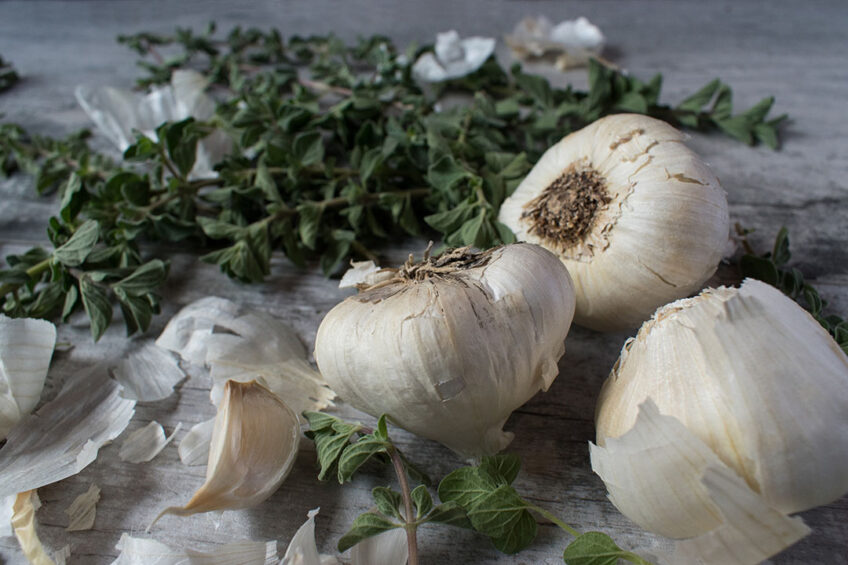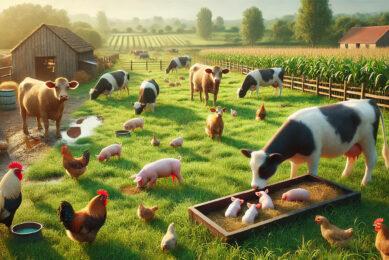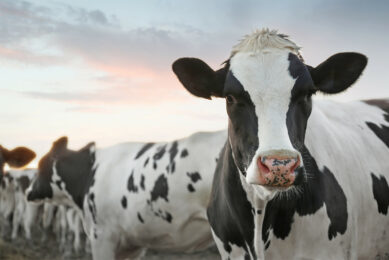Anticoccidial effects of oregano and garlic

Recent efforts on performance improvement for broilers have focused on the advancement in the use of feed additives with beneficial bioactive compounds that protect against bacteria and parasites. Researchers have found a combination of oregano and garlic essential oils to have anticoccidial effects in broiler diets.
Part of the Gut Health 2022 Special
Coccidiosis persists as a problem and remains a major predisposing factor for the occurrence of necrotic enteritis and other pathogenic diseases. It is a major parasitic disorder in chickens caused by protozoa Eimeria that target the intestinal tract leading to a devastating disease. Oregano and garlic essential oils possess bioactive compounds that could be used as natural growth enhancers with potent anticoccidial properties.
The oregano-garlic study
This article elaborates on a study where researchers from Aristotle University of Thessaloniki, Greece investigated the combined beneficial effects of oregano and garlic essential oils on inhibition of Eimeria parasites, production performance, intestinal microbiota modulation, and oocyst output in broiler chickens. In the in vivo trial, during screening, Eimeria infection was detected based on gross intestinal pathology and oocyst morphology. The control group chickens were fed commercial corn and soybean meal-based rations without anticoccidials or antibiotics. The diet of the experimental oregano-garlic group was further supplemented with a premix containing the essentials oils at 1 g/kg feed, throughout the trial. In the in vitro study, sporozoites of the E. tenella were used to perform infections, whereby Madin-Darby bovine kidney (MDBK) cells were incubated for 24 hours with different concentrations of oregano or garlic essential oils.
Inhibition of E. Tenella
The results showed that both oregano and garlic possess very strong anticoccidial activity in vitro, evidenced by the inhibition of sporozoite invasion at the higher concentrations tested. At high concentration, oregano essential oil exhibited an effect comparable with robenidine, a well-known anti-coccidiostat. Parasite invasion and replication were not notably influenced by lower doses of either essential oil, but almost no intracellular sporozoites were found when the highest doses were used: Parasite invasion was inhibited by the oregano essential oil at the concentration of 100µg/ml by 93% after 24 hours, while garlic essential oil reached a maximum inhibition of 70% after 24 hours with the 50µg/ml concentration.
The researchers pointed this anticoccidial activity to the hydrophobic character and low molecular weight of the main phenolic compounds present in the essential oils that allow them to disintegrate outer cell membranes – increasing cytoplasmic membrane permeability that leads to cell death caused by leakage of ions, energy loss, and diffusion of cell contents. “Further, the high lipid solubility of oregano and garlic essential oils is likely to permit rapid diffusion through parasite and host cell membranes. Other possible mechanisms could include interference with the calcium-mediated signalling that is a necessary mechanism for invasion by E. tenella sporozoites,” they added.
Growth performance
The group of chickens that received oregano and garlic essential oils demonstrated higher performance as indicated by weight gain, feed-to-gain ratio, and by lower levels of faecal oocyst excretion (Table 1). According to the researchers these results were consistent with previous studies with Eimeria-challenged broilers.
Intestinal bacteria count
Studies show that the severity of pathology caused by Eimeria infection of broiler chickens as quantified by intestinal lesion scoring can be linked with changes in enteric microbial occurrence and population structure. In this study, the diversity of microbial composition within caecal and jejunal microbiomes showed a potentially more beneficial composition in broilers fed the mixture of oregano and garlic oil compared with control chickens. The researchers found a significant increase in Enterobacteriaceae and E. coli in the jejunum of the essential oil-supplemented birds, but this effect was not repeated in the caeca. Oregano and garlic essential oil supplementation lowered C. perfringens counts in the jejunum, a site where it has been associated with intestinal epithelium inflammation and stimulation of bacterial dysbiosis. Lactobacillus was not different between the control and the oregano-garlic diet.
Oocyst output
The effect of herbal additives on avian coccidiosis is based on diminishing the oocyst output through inhibition or impairment of the invasion, replication, and development of Eimeria species in the gut tissues of chickens. Faecal oocyst counts were affected by the dietary essential oil supplementation. On day 28, the oregano-garlic treatment had significantly lower (8% lower) faecal oocyst counts, and on day 37 it also showed significantly lower (13% lower) oocyst counts.
Factors influencing the outcome of coccidiosis infection
The efficacy and benefits of supplementing essential oils on the control of coccidiosis in poultry are variable, possibly because of heterogeneity in product composition, supplementation dose, nature of processing, and duration of feeding. A brief explanation of some of these factors were put forward in a similar study:
Age: Prevalence increases among the younger chicks, while older chickens are relatively resistant to infection.
Host genetics: The chickens’ genetic background influences the development of the parasites, as different lines of chickens may display a different susceptibility to the same Eimeria infection as seen in oocyst production, lesion scores, and clinical signs.
Species involved and their infective dose: The severity of infection caused by avian coccidiosis is directly related to the parasite species, the isolate or strain involved, and the number of oocysts ingested.
Medications and other stress factors: Suboptimal inclusion or extensive use of anticoccidials in feed creates resistance and poor litter management, while other stressors (i.e., dietary changes, and immunosuppressive effects) are all possible risk factors associated with the outbreak of coccidiosis.
Concurrent infections: Exogenous factors that have an immunosuppressive effects increases susceptibility to coccidiosis.
Positive effects of using oregano and garlic on broilers
The researchers concluded that a combination of oregano and garlic essential oils can improve growth performance in broiler chickens and reduce Eimeria oocyst output by exerting a coccidiostatic effect. Oregano and garlic essential oils exert positive effects on the intestinal microbiota, supporting interactions between diet-mediated alterations in the microbiota and chicken growth performance. It was stated that this study provides credible evidence that rearing broilers without anticoccidial drugs or ionophores is possible, without compromising performance.
Article is based on the research paper “In vitro Anticoccidial Study of Oregano and Garlic Essential Oils and Effects on Growth Performance, Fecal Oocyst Output, and Intestinal Microbiota in vivo”. The full paper can be accessed in the Frontiers in Veterinary Science journal 31 July 2020. Sec. Animal Nutrition and Metabolism.
Join 13,000+ subscribers
Subscribe to our newsletter to stay updated about all the need-to-know content in the dairy sector, two times a week.






